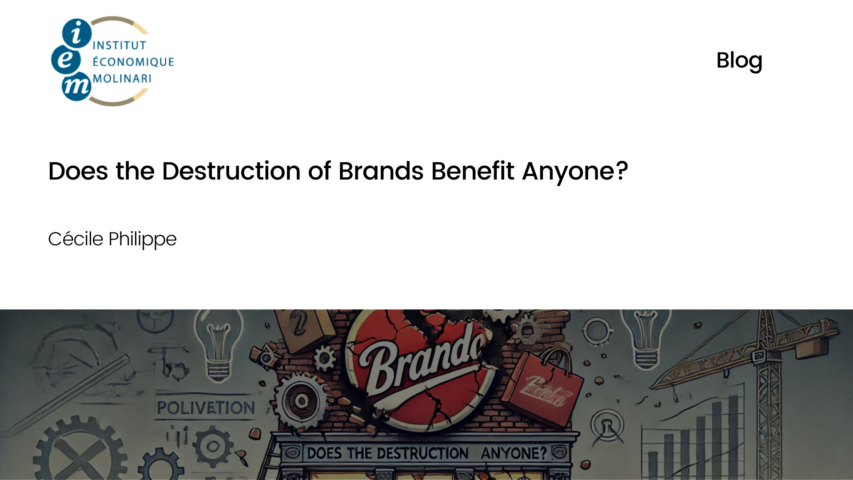Does the Destruction of Brands Benefit Anyone?

Does the Destruction of Brands Benefit Anyone?
Cécile Philippe // 31.05.2016
On 20th May, a law mandating the plain packaging of tobacco products came into force in France. Similar legislation has been put in place in Ireland and the United Kingdom. They follow Australia, which in 2012 became the first country to require standardised cigarette packets.
The evidence since 2012 suggests that plain packaging has not helped to reduce smoking prevalence in Australia: the percentage of adult smokers in the country actually increased immediately after the law came into force. A downward trend resumed afterwards, but only after cigarette taxes perceptibly increased. Furthermore, the pace of decline is the same as before the advent of plain packs. While the apparent failure of the policy may have come as a surprise to its proponents, it confirmed the intuition of ordinary Australians, 66 per cent of whom – when polled by the Institute of Public Affairs, before the law came into force – did not believe it would succeed.
Yet, it is not simply that plain packaging laws are ineffective. They can be actively damaging, and not just to the owners of the brands in question, which lose most of their value as a result of being banned for all intents and purposes. As a 2013 report from Institut Economique Molinari argued, brands are useful devices for manufacturers to signal quality and build reputation and following among customers. Brands make it easier for customers to shop with confidence, thereby reducing search costs. The existence of brands is an incentive for manufacturers and suppliers to maintain high standards in order to retain their popularity. Their absence negates all of these important benefits.
Indeed, it could even be that plain packaging – of any product, not just cigarettes – proves counterproductive. As is argued in the IEM report, standardised packaging turns the product in question into a “generic,” which would likely lead to falling prices and higher consumer demand as a result. It is not a given that making it harder for customers to choose will gradually wean them off unhealthy habits.
Cécile Philippe is Director General of the Institut Economique Molinari.
EPICENTER publications and contributions from our member think tanks are designed to promote the discussion of economic issues and the role of markets in solving economic and social problems. As with all EPICENTER publications, the views expressed here are those of the author and not EPICENTER or its member think tanks (which have no corporate view).



